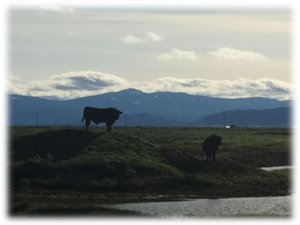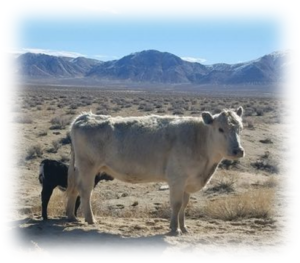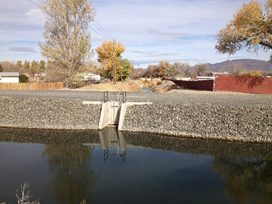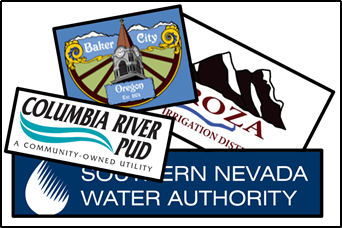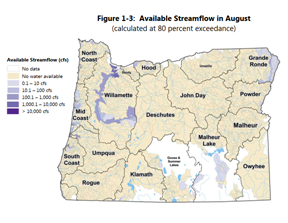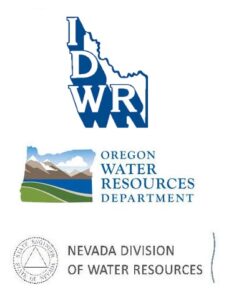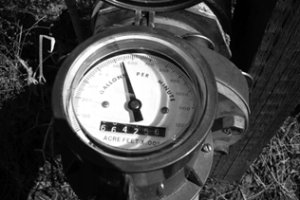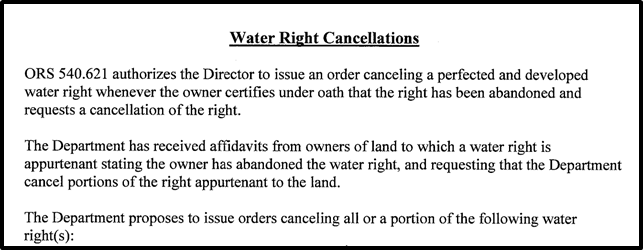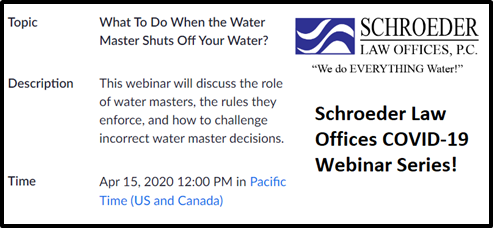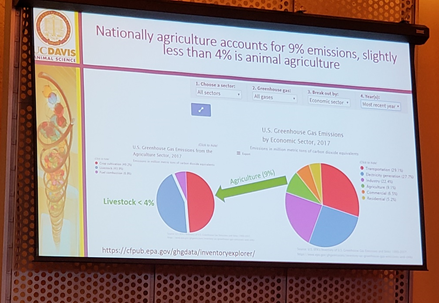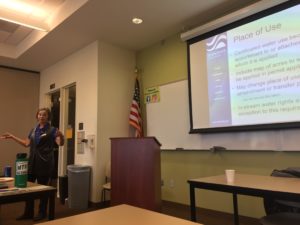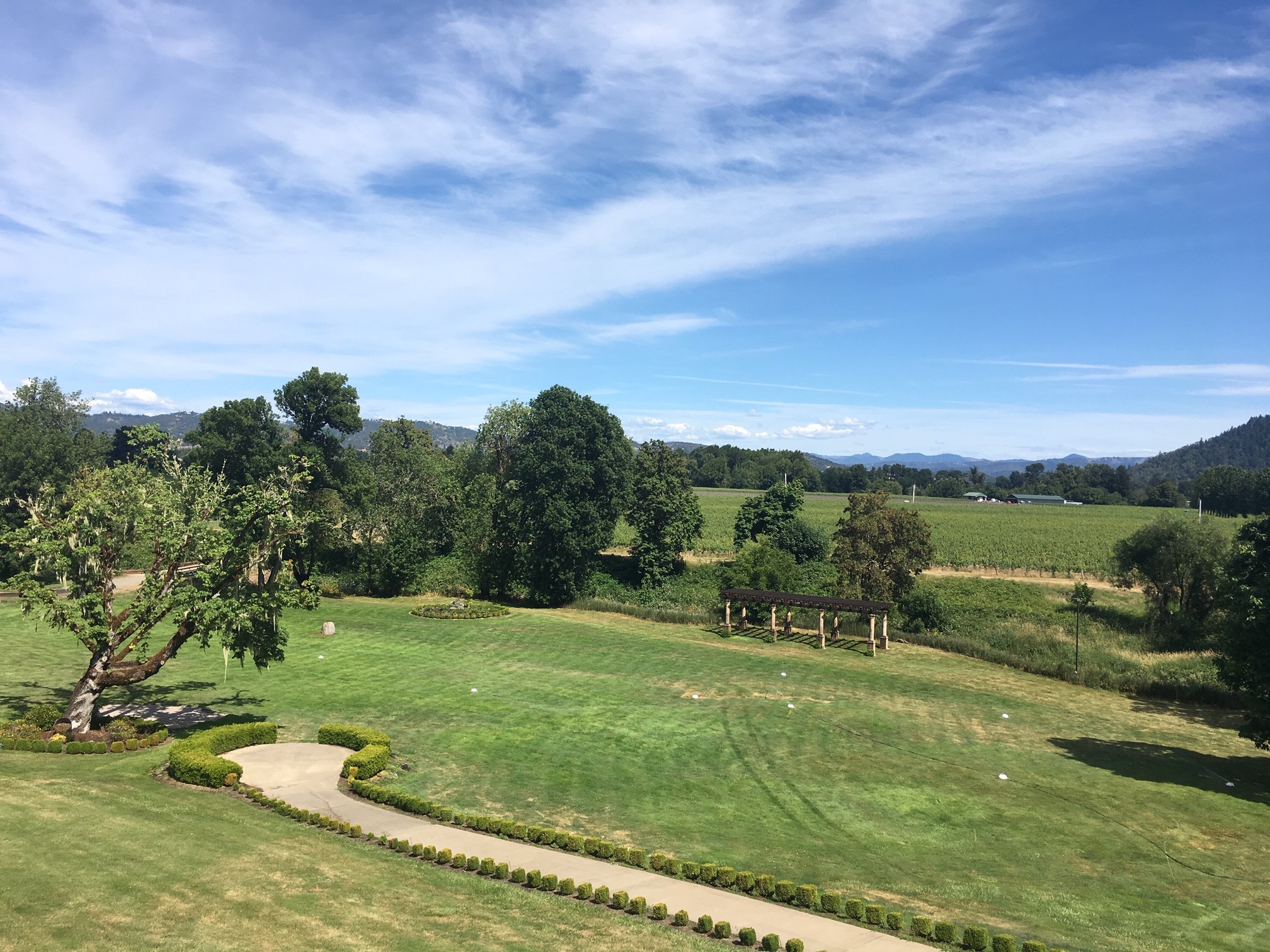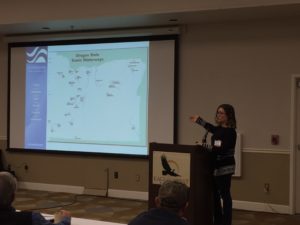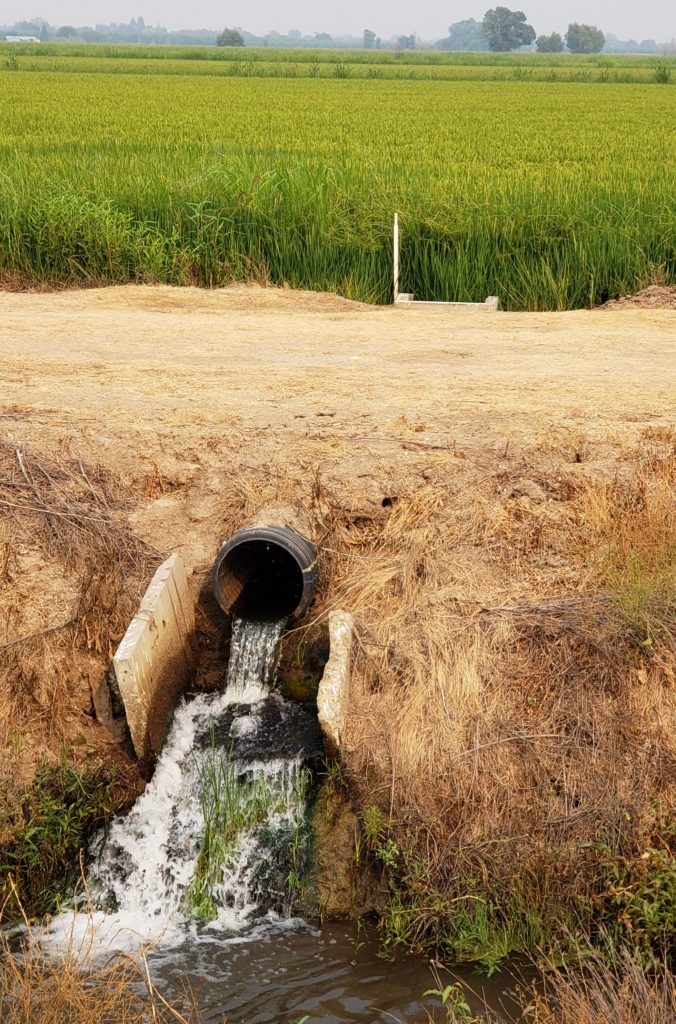By: Caitlin Skulan and Leslie Velazquez
In spite of her busy schedule attending client needs, Attorney Ure put on her Professor’s hat and gave a three-hour Water Rights Class to Reno Real Estate Agents. The class, which Attorney Ure does regularly at real estate groups’ requests, focuses on water right laws in Nevada and some things Real Estate Agents especially should look out for when working with clients to buy or sell property.
Attorney Ure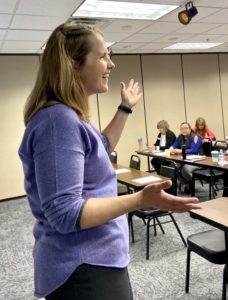 gave a brief overview of the history of water law in Nevada. Remarkably, irrigation in the United States dates back to 300 A.D. The Hohokam Tribe wove mats of brush to divert water to cornfields. Water law itself dates back to medieval England and the “Rule of Capture,” meaning you capture it, you own it. This concept then translated into early American gold mining camps when miners staked claims for mining gold they found or “captured.” As miners began to settle in the West, the rule was applied to water. The first to capture the water had a right to the amount they captured. This is called the “first in time, first in right” rule and is the fundamental base for Nevada’s “Prior Appropriation” or priority-based water law system.
gave a brief overview of the history of water law in Nevada. Remarkably, irrigation in the United States dates back to 300 A.D. The Hohokam Tribe wove mats of brush to divert water to cornfields. Water law itself dates back to medieval England and the “Rule of Capture,” meaning you capture it, you own it. This concept then translated into early American gold mining camps when miners staked claims for mining gold they found or “captured.” As miners began to settle in the West, the rule was applied to water. The first to capture the water had a right to the amount they captured. This is called the “first in time, first in right” rule and is the fundamental base for Nevada’s “Prior Appropriation” or priority-based water law system.
Next, Attorney Ure outlined the three fundamental principles of providing proof of a water right: beneficial use, priority, and appurtenance. Beneficial use is the basis, the measure, and the limit of all rights to the use of water. Almost any use that has a special value to the public is a beneficial use. Priority, as noted above, is the right to use water awarded to the first diverter from the natural course. Therefore, senior appropriators may use their entire right before junior users are able too. The priority date of a water right may be based on the date in which an application was filed with the Nevada Department of Water Resources. Alternatively, if the water use predates the enactment of Nevada’s 1905 Water Code, the priority date is determine in a special adjudication proceeding based on evidence of the earliest use and its continuation to present time. Finally, water rights are appurtenant to the land where perfected. This means water rights run with the land and unless otherwise noted, will transfer with land under general “appurtenance” language in a deed. All of these factors are important to real estate agents because they help determine what the water can be used for, how safe the water is in times of drought and curtailment, and if the transfer documents, both past and present, will result in the buyer obtaining water with the land they are purchasing. These are all important factors for a buyer to consider.
Another important note was identifying the type of water being used; surface water or groundwater. Attorney Ure outlined the difference between surface water and groundwater, and various types of aquifers, including confined and alluvial/unconfined. For example, confined aquifers occur when impermeable dirt/rock layers prevent water from seeping into the aquifer from the surface. Unconfined aquifers occur when water seeps from the surface directly above the aquifer through porous sediment. The latter kind are more likely to be connected to sources of surface water through a “hydraulic connection,” which can be determined with the help of hydrogeologists.
Pumping of groundwater that has a hydraulic connection to surface water may result in the change of flow or water levels in nearby streams or lakes. This makes conjunctive management of surface and groundwater extremely important to prevent surface right users with senior priority dates from injury by groundwater pumping. However, not all prior appropriation states have an established regulation scheme recognizing this interconnection between surface and groundwater, because water law predates the scientific discovery of hydraulic connections. Some states may explicitly prohibit groundwater use interfering with senior surface water rights, while others make no reference at all.
Lastly, Attorney Ure demonstrated where Real Estate Agents can find water rights connected to specific lots of land and forms necessary for transactions involving water, leaving each student with some valuable tools to apply during their next property sale!
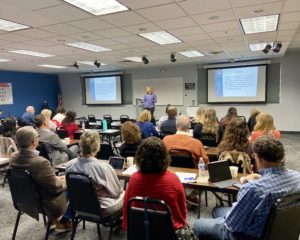 If your organization is in need of water related education, we are happy to be a resource and set up a class similar to this one! Visit our website for a full list of speaking and presentations topics: https://www.water-law.com/speaking-and-presentations/
If your organization is in need of water related education, we are happy to be a resource and set up a class similar to this one! Visit our website for a full list of speaking and presentations topics: https://www.water-law.com/speaking-and-presentations/
Here at Schroeder Law Offices P.C., we enjoy providing educational presentations both private and public to teach others the importance and complexity of water rights.

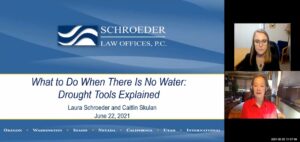 Schroeder Law Offices’ 2021 VACCINE webinar series is already half over. Lucky for you, all webinars are available on-demand! In case you missed it, be sure to watch the 2021 VACCINE Webinars that already took place:
Schroeder Law Offices’ 2021 VACCINE webinar series is already half over. Lucky for you, all webinars are available on-demand! In case you missed it, be sure to watch the 2021 VACCINE Webinars that already took place: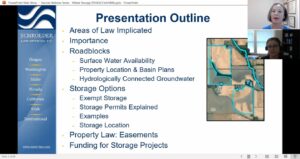 Don’t miss out on the upcoming webinars either! The following topics are still in the works for the 2021 VACCINE Series:
Don’t miss out on the upcoming webinars either! The following topics are still in the works for the 2021 VACCINE Series:

